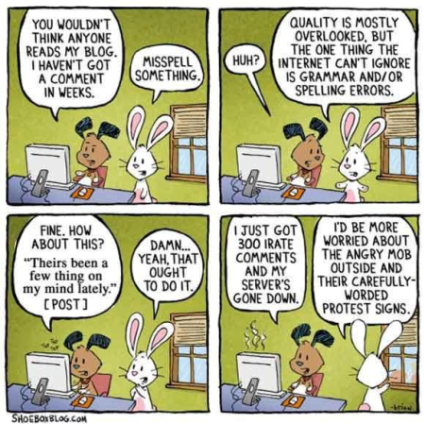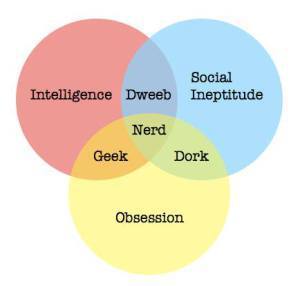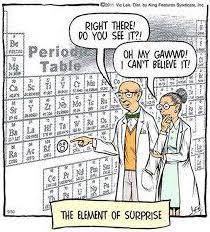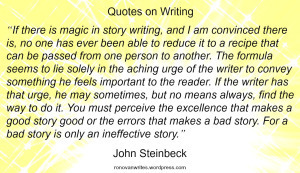Mira Prabhu's Blog, page 54
April 3, 2016
Laughter the best medicine – I just found a magic lamp!!
Courtesy my friend Sally Cronin…enjoy!
 Smorgasbord - Variety is the spice of life
Smorgasbord - Variety is the spice of life
 A woman was walking along the beach when she stumbled upon a Genie’s lamp. She picked it up and rubbed it, and lo-and-behold a Genie appeared. The amazed woman asked if she was going to receive the usual three wishes.
A woman was walking along the beach when she stumbled upon a Genie’s lamp. She picked it up and rubbed it, and lo-and-behold a Genie appeared. The amazed woman asked if she was going to receive the usual three wishes.
The Genie said, “Nope … due to inflation, constant downsizing, low wages in third-world countries, and fierce global competition, I can only grant you one wish. So … what’ll it be?”
The woman didn’t hesitate. She said, “I want peace in the Middle East. See this map? I want these countries to stop fighting with each other.”
The Genie looked at the map and exclaimed, “Gadzooks, lady! These countries have been at war for thousands of years. I’m good, but not THAT good! I don’t think it can be done. Make another wish.”
The woman thought for a minute and said, “Well, I’ve never been able to find the…
View original post 650 more words


April 2, 2016
Hemingway on what makes a writer – Quotes for Writers (and people who like quotes
I’m a voracious reader, have since since I first learned my A, B. C…and over the years my tastes have naturally changed. I write spiritual fiction, and so, when I need a light break, I will pick up any decent book I can find around and dive into it. However I find that even the well-crafted books I read don’t stay with me unless they trigger deeper thoughts and feelings within my heart.
Today writers are urged to produce, produce, produce…I have never followed the mainstream, and don’t care a damn about this dictum at all. I write what I love and I take as much time as I need to finish a manuscript – Whip of the Wild God took me 20 years to complete (7 major revisions and much lag time in-between); Krishna’s Counsel which will be published this year will have taken me 8 years or more, and Copper Moon, my third novel, was begun in 2000 in the foothills of the Himalayas…just saying!

All good books are alike in that they are truer than if they had really happened and after you are finished reading one you will feel that all that happened to you and afterwards it all belongs to you; the good and the bad, the ecstasy, the remorse, and sorrow, the people and the places and how the weather was. If you can get so that you can give that to people, then you are a writer.
Ernest Hemingway


April 1, 2016
DRUGS, GUNS & SATSANGH
 In the course of a fiery discussion on how so-called gurus milk unwary disciples of their money as well as precious intangibles, a friend mentioned that Papaji (a devotee of Ramana Maharshi who later became a guru in his own right) had bluntly prophesied that in the not-so-distant future, a lot of money would be made out of drugs, guns and satsangh.
In the course of a fiery discussion on how so-called gurus milk unwary disciples of their money as well as precious intangibles, a friend mentioned that Papaji (a devotee of Ramana Maharshi who later became a guru in his own right) had bluntly prophesied that in the not-so-distant future, a lot of money would be made out of drugs, guns and satsangh.
Now drugs and guns have always been money-spinners for unscrupulous individuals who worship Mammon—but making money out of satsangh? And what does the word mean in the first place? Etymologically satsangh derives from two Sanskrit words: sat (ultimate truth) and sangha (the company of spiritual friends). It means a gathering of seekers whose primary interest is to awaken the divine within themselves—and who seek strength and support as they tread the tortuous yet amazing journey into inner space. Often gurus hold satsanghs for their followers, and today’s so-called gurus are known to charge big bucks for the privilege of meeting them in such a forum.
 How did things get to such a sorry state? Well, according to some, mankind is right now mired in the evil of what eastern philosophy calls Kali Yuga. Some claim we have left this evil age behind, while others say we are in either the thick, or at the tail end of it. Since Kali Yuga is characterized by a ghastly deterioration in human ethics, I personally believe we are still in this age.
How did things get to such a sorry state? Well, according to some, mankind is right now mired in the evil of what eastern philosophy calls Kali Yuga. Some claim we have left this evil age behind, while others say we are in either the thick, or at the tail end of it. Since Kali Yuga is characterized by a ghastly deterioration in human ethics, I personally believe we are still in this age.
So it is not hard for me to believe that the once pure guru committed to freely spreading the living truth is now capable of being a deceiver. Look around and you will see many who are motivated not by the spreading of light, but in attracting adulation, power, sex, and money from the gullible and the desperate who flock to them.
During my intense study of Mahayana Buddhism, I came across eighteen points given to a student who wishes to find the right guru. Computer crashes and several international moves have led to my losing this information, but, as I recall, the points were unflinching and clear and pointed to how important it is to locate the right teacher if we are genuinely interested in becoming completely free of desire and fear.
Today I see many seekers who, unable to find what they want in their own religious paradigms, come east in quest of a higher truth. But despite finely honed minds and higher education, they do not take the trouble to gain a solid foundation in eastern philosophy—one that can help them discern the sheep from the wolf, and the shepherd from the predator. Watching this confusion has led me to mull over this critical subject and to come up with my own two bits to offer those who care to listen.
 The seeker has first to determine whether she wishes merely to learn effective ways to lick wounds, or whether she is interested in the ultimate goal of permanent liberation from the twin drives of desire and fear, which sages say cause all our suffering. If it is final freedom one desires, then only a satguru will do for the final leg of our inward journey.
The seeker has first to determine whether she wishes merely to learn effective ways to lick wounds, or whether she is interested in the ultimate goal of permanent liberation from the twin drives of desire and fear, which sages say cause all our suffering. If it is final freedom one desires, then only a satguru will do for the final leg of our inward journey.
Now gurus come in many guises—a parent, friend, colleague, teacher, partner, enemy, even an animal or a thorny situation. When one is finally prepared for the great leap into the spiritual heart, one hopefully encounters a satguru—a being who has watched you being marinated by the myriad sufferings and joys of life and decides to give you a final teaching to completely erase your egoic suffering.
In the old days in India, the relationship between guru and disciple was a long one. The disciple served the guru and sometimes observed him for up to a dozen years before deciding whether he was the right teacher to lead her to moksha. Today, given that lots of folks barely have time to breathe, how can a human easily differentiate between a true and a false teacher?
Here is one way: First simplify the meaning of enlightenment—one who has transcended desire and fear by merging into his true nature or sat-chit-ananda. (Sat: Being, I-Am-ness, Aliveness. Chit: Consciousness, Awareness, Intelligence, Gnosis. Ananda: Fusion of Bliss and Peace.)
 If a guru claims to be enlightened, it would mean his inner fountain of bliss is suffusing him with a peace and joy impossible for ordinary humans to fathom. Dwell deeply on this aspect before you commit to any spiritual teacher: for instance, would an enlightened being be inclined to organize events designed to attract needy followers willing to pour money into his coffers, adore him, and spread his fame? The answer would have to be a resounding no.
If a guru claims to be enlightened, it would mean his inner fountain of bliss is suffusing him with a peace and joy impossible for ordinary humans to fathom. Dwell deeply on this aspect before you commit to any spiritual teacher: for instance, would an enlightened being be inclined to organize events designed to attract needy followers willing to pour money into his coffers, adore him, and spread his fame? The answer would have to be a resounding no.
If you find yourself attracted to one who implies he is enlightened, make sure you do your homework before you sign on for what could be a disappointing ride. Carefully observe whether this person’s talk matches his walk, whether his ego is running the show, whether he is growing materially rich via his disciples, whether he has random sexual liaisons, et cetera, et cetera.
This is not to say that the pursuit of ordinary human happiness is wrong; it is to say that if a so-called guru is engaged in these kinds of activities on the sly, one must beware. The liberation teachings are so precious that no true teacher would ask you for money or sex or adulation in exchange for pure teachings. If you can’t find a guru you can commit to, be patient, continue with your inner work, and ask for help, for it will surely come.
The culmination of my own search came in the form of Ramana Maharshi, the great south Indian sage who teaches Atma-Vichara or the investigation into the Self that we truly are, immortal, blissful, loving, wise, fearless and connected to all beings.
 Greetings from Arunachala, the sacred mountain believed to be Shiva the Destroyer, and who promises to destroy the egoic-mind so we can experience ourselves as immortal bliss!
Greetings from Arunachala, the sacred mountain believed to be Shiva the Destroyer, and who promises to destroy the egoic-mind so we can experience ourselves as immortal bliss!
Follow Blog via Email
Enter your email address to follow this blog and receive notifications of new posts by email.
Click the buttons below to SHARE if you liked this post.
Click here to leave a COMMENT


March 29, 2016
Why Do Writers Write?
“Sculptors use chisels and other tools to release that statue trapped inside the block of marble. Painters use brushes, palette knives and all manner of paints and pigments to produce that painting which you admire in an art gallery. Whereas we use words to paint a picture for your imagination to feast on.” A great post on why writers write from Jack Eason…read on!
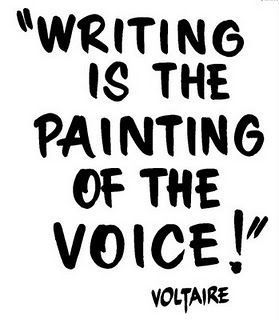
You may as well ask why do painters paint, or sculptors sculpt. Like them, we have a burning desire within us to produce something for posterity. In our case, for your reading pleasure. The serious writer isn’t in it for the money, only the story. Nor are we attempting to become famous during our lifetimes, just to be read.
Sculptors use chisels and other tools to release that statue trapped inside the block of marble. Painters use brushes, palette knives and all manner of paints and pigments to produce that painting which you admire in an art gallery. Whereas we use words to paint a picture for your imagination to feast on.
By its very nature, writing is a solitary occupation. You have to have a writer’s soul and a total commitment to the craft, not to mention a steely determination.
An editor or a teacher of English can give…
View original post 390 more words


Blessed are the geeks
March 28, 2016
John Steinbeck: Magic in Story Writing. (A Quote)
A bad story is only an ineffective story – John Steinback.
The truth is that a great writer can make even a lousy story compulsively readable…and a poor story-teller can mess up a tale of great potential. Thank you Ronovan Hester!
“If there is magic in story writing, and I am convinced there is, no one has ever been able to reduce it to a recipe that can be passed from one person to another. The formula seems to lie solely in the aching urge of the writer to convey something he feels important to the reader. If the writer has that urge, he may sometimes, but no means always, find the way to do it. You must perceive the excellence that makes a good story good or the errors that makes a bad story. For a bad story is only an ineffective story.” John Steinbeck


March 26, 2016
Why is English So Much FUN?…Meme…
Why is English so much fun? Check out this meme….thanks Chris Graham and Phil, the Tasmanian Devil for this reminder!
 Chris The Story Reading Ape's Blog
Chris The Story Reading Ape's Blog
My Thanks to Phil, the Tasmanian Devil, for this Meme:
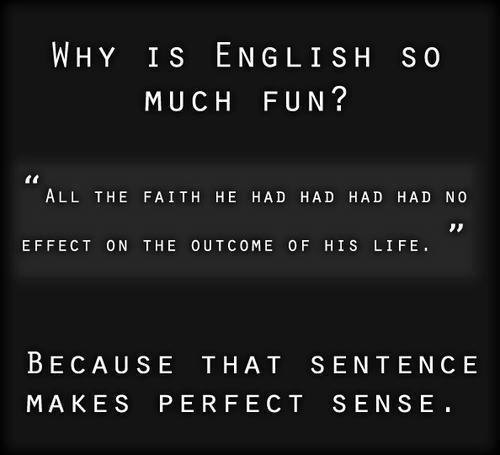


March 25, 2016
Being Uncomfortable, Voicing Discomfort, and Leaving Uncomfortable Spaces
Lisa addresses an issue that confuses most humans – do we speak up when people attack or mock us (or others around us), and take the discomfort that accompanies standing up for ourselves, or do we just ignore them and hope they will go away?
As Lisa says here: “I am not good at speaking out when I am hurt by the words of others. I hate confrontation, it makes me uncomfortable. Lately, I have been thinking about the consequences of keeping quiet. Maybe it is doing more harm than just saying how I feel?….
I am not helping anyone by doing nothing.”
I agree that we do not help ourselves or others when we passively accept abuse; if out of fear of consequences we keep quiet, no one grows. And yet it takes skill and compassion for ourselves and for others, to learn how to handle these vexing situations…after all these years, I am still polishing what eastern teachers refer to as “skillful means”….what about you?
I am not good at speaking out when I am hurt by the words of others. I hate confrontation, it makes me uncomfortable. Lately, I have been thinking about the consequences of keeping quiet.
Maybe it is doing more harm than just saying how I feel? I allow other people to harm me because I don’t want to make waves, or make anyone feel bad, or start an argument. I am not protecting myself and I am not challenging misinformation when I hear it. I am allowing these people to become more comfortable in their ignorance and giving them the idea that it is okay to say the things they do.
I am not helping anyone by doing nothing.
***
Years ago a coworker and I are discussing the possibility of gay marriage. She knows my girlfriend, and she knows we have been together for many years. She has always been…
View original post 763 more words


March 21, 2016
6 Founding Principles of Ancient Irish Society
Ali Isaac’s fascinating post on the founding principles of ancient Irish society – evokes the principles that ancient Indian society lived by too…and she ends with this: “I’d just like to point out here that Macha ran a race whilst heavily pregnant against horses and won; when experiencing the same pains that she felt, the men were unable to move, even to defend their own country. Typical!” Now read on….
 6 Founding Principles of Ancient Irish Society
6 Founding Principles of Ancient Irish Society
http://www.aliisaacstoryteller.com
I’ve long felt that our ancient Irish ancestors were far more advanced and civilised than we give them credit for. Not simply because of the amazing engineering which went onto the construction of the stone structures they left behind in the landscape, but through all that I have learned about their beliefs and way of life from reading their stories in the ancient texts. Topped off by the extraordinary Brehon Laws which governed their society.
During my research, I came across the work of Alexei Kondratiev. He was an author, linguist, and teacher of Celtic languages, folklore and culture in America until his death in 2010. He considered himself to be both a Neo-pagan and a Christian, could speak all six Celtic languages, and several native American languages too. He was a very accomplished scholar and teacher, with qualifications in anthropology, linguistics…
View original post 1,788 more words


March 20, 2016
“…failure is what writers do.” Anne Enright QUOTES FOR WRITERS (AND PEOPLE WHO LIKE QUOTES)
“Failure is easy. I do it every day, I have been doing it for years. I have thrown out more sentences than I ever kept, I have dumped months of work, I have wasted whole years writing the wrong things for the wrong people.” Yes, writing seriously is hard work – but for some of us, it is also our magnificent obsession…thank you Anne Enright and Bridget Whelan!
 I have no problem with failure – it is success that makes me sad. Failure is easy. I do it every day, I have been doing it for years. I have thrown out more sentences than I ever kept, I have dumped months of work, I have wasted whole years writing the wrong things for the wrong people. Even when I am pointed the right way and productive and finally published, I am not satisfied by the results. This is not an affectation, failure is what writers do. It is built in. Your immeasurable ambition is eked out through the many thousand individual words of your novel, each one of them written and rewritten several times, and this requires you to hold your nerve for a very long period of time – or forget about holding your nerve, forget about the wide world and all that anxiety and just do it, one word after the…
I have no problem with failure – it is success that makes me sad. Failure is easy. I do it every day, I have been doing it for years. I have thrown out more sentences than I ever kept, I have dumped months of work, I have wasted whole years writing the wrong things for the wrong people. Even when I am pointed the right way and productive and finally published, I am not satisfied by the results. This is not an affectation, failure is what writers do. It is built in. Your immeasurable ambition is eked out through the many thousand individual words of your novel, each one of them written and rewritten several times, and this requires you to hold your nerve for a very long period of time – or forget about holding your nerve, forget about the wide world and all that anxiety and just do it, one word after the…View original post 57 more words






